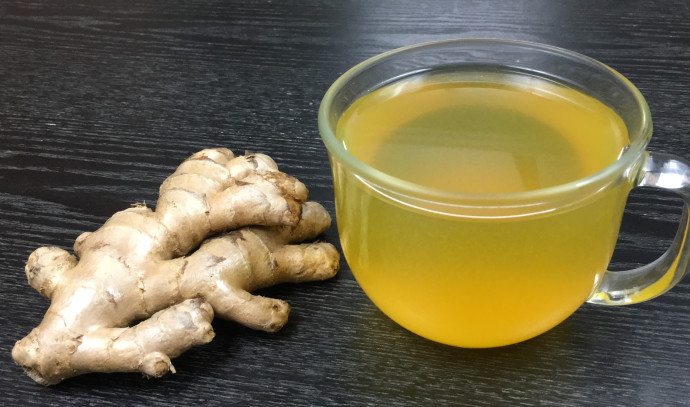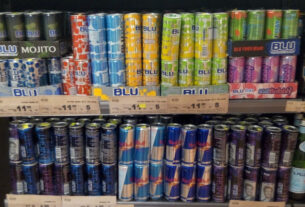It is a well-known fact that drinking water contributes to all of the body’s systems and it is the healthiest drink. After all, between 50-70% of the human body is made out of water. But what about those who find water’s taste boring and who need frequent trips to the bathroom, which is difficult for them?
Drinking water has become a “badge of honor” among celebrities, with Jennifer Aniston and Gwyneth Paltrow revealing that they drink about three liters of water a day. However, not everyone has found it that easy to consume water.
Florence Poe, for example, recently announced that “drinking water bores” her. In addition to the lack of taste, she lamented the frequent bathroom breaks that come as a result of consuming a large amount of water, calling them “a waste of time.” Instead, she explained that she prefers to drink orange juice and tea.
What do the experts think about this? How much water should we drink each day and can we get the same level of hydration from other drinks?
Dr. Chris Richeson said that it is recommended to drink between 6-8 glasses of water a day, which is about two liters.
“Although this is the general guideline, there are very few studies with concrete evidence regarding the optimal amount of water intake. Different people have different sensitivity levels to dehydration, so the need may vary from person to person,” Richeson explained.
The signs of dehydration
When signs of dehydration occur, they can be hard to spot and easily confused.
“Not drinking enough [water] can increase the risk of urinary tract infections and headaches along with fatigue, confusion, darker urine, dry cracked skin and irregular bowel movements,” Richeson said. It can also lead to low blood pressure or hypertension – a condition that can cause sudden dizziness and falls when standing.
Drinking water can help prevent unpleasant health conditions such as migraines, frequent headaches and kidney stones.
While plain water is the healthiest source of hydration, Richeson said any non-alcoholic beverage contributes to our health.
In 2016, researchers at the University of Stirling monitored students’ hydration levels for four hours after drinking different fluids. They discovered that a liter of instant coffee and even beer contained exactly the same amount of moisture as water, but the highest hydration levels came from drinking milk.
How often should we be drinking drinks other than water?
Dr. Richeson explained that it’s not a good idea to drink water alternatives on a regular basis.
“Tea and coffee are diuretics, which means they make us go to the bathroom more often and lose fluids. Fizzy drinks and juices will hydrate us, but they contain a high amount of sugar – which can lead to long-term health problems.”
“The caffeine in tea and coffee can lead to other side effects that include increased heart rate and anxiety, restlessness, insomnia, digestive problems Or nausea and diarrhea, sleep disorders and high blood pressure and even caffeine addiction.
Nishta Fatal, a functional medicine and clinical nutritionist, explained: “It is recommended to limit caffeine consumption to about 400 mg per day, an amount equivalent to about four to five cups of coffee, or eight to ten cups of tea.” When it comes to sugar, the nutritionist recommended not to consume more than 30 grams of sugar per day: “Fizzy drinks and energy drinks contain enough sugar to overcome the recommended daily intake in just one serving. Diet drinks are not superior, since these affect the microbiome of the gut and, like other ultra-processed foods, have been linked to other diseases, including memory loss and liver problems.”
Fresh juices, on the other hand, contain more nutrients than fizzy drinks, but Fatal warned that it is still possible to exceed the recommended daily amount of sugar by consuming them. “On average, a glass of freshly squeezed orange juice contains about 20-25 grams of sugar. Excess sugar consumption, even from a natural source, can still cause negative effects and increase the risk of type 2 diabetes and obesity. This is why drinking water is the most satisfying and healthiest. Maximum hydration – zero calories.”
Overcoming the ‘boring’ taste of water
If you too, like Poe, find drinking water “too boring” or “tasteless”, nutritional therapist Talia Pellegrini recommends adding fruit to a jug of water and putting it in the fridge. “You can also try adding grapes, lemon, cucumber, peaches, pineapple, oranges, pears and even mint.”
What about the people who avoid heavily drinking water because they are afraid of needing to go to the bathroom too often?
Virpal Sandhu, a clinical pharmacist, said this problem is particularly common in pregnant women and the elderly, as they have problems with bladder control.
“One of the solutions is to drink more when you are near empty toilets. In addition, there are exercises designed to strengthen the pelvic floor, which will help us control the bladder,” Sandhu recommended.
Sandhu also explained that water is essential for the health of the human body.
“Water makes up more than two-thirds of our body, it lubricates the joints and eyes, aids digestion, removes waste and toxins and keeps the skin healthy.” He recommended increasing water intake gradually and drinking a little at a time, throughout the day. “About 1.5 to three liters of water a day will be enough.”




